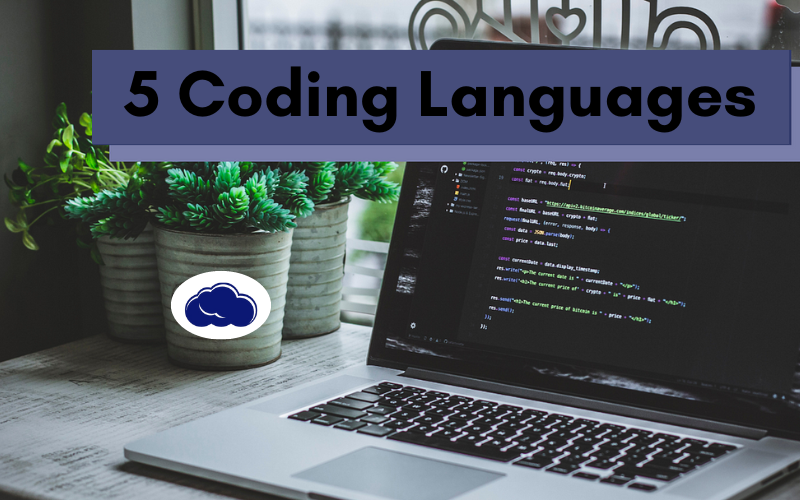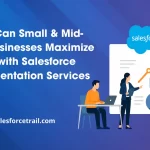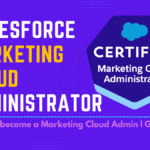The Salesforce ecosystem is growing and developers must be ahead of the game whether you are a true pro or seasoned Salesforce developer, or just beginning to be a master at coding languages which should take you to the right path. Salesforce development is a dynamic field that requires strong skills to keep up with its potential and market requirements. So in this blog, we will explain the top 5 necessary coding languages every Salesforce developer is supposed to learn. For a Salesforce developer, mastering the correct coding languages can notably boost your productivity, efficiency, and the quality of solutions you can deliver. Let’s dive in!
Apex: The Backbone of Salesforce Development
Apex is the language at the heart of Salesforce development and it’s important for any Salesforce developer. Apex is a strongly typed object-oriented programming language that lets you execute flow and transaction control statements on the Salesforce platform. That’s why it is a must-have:
- Apex is a server-side language: You can create complex business logic and develop your custom functionalities using Apex as it runs on the salesforce servers.
- Salesforce-adjacent: It’s built to integrate nicely with Salesforce data and functionality, making it a powerful system for SFDC development.
- Resembles Java: If you are familiar with Java, you will find Apex an easy language to learn because of the many similarities in syntax.
To become a successful Salesforce developer, one must have mastered Apex this gives them ground, and they can build most of their custom solutions within the Salesforce ecosystem.
Javascript: Empowering User Experience
Apex has performed his administration and server-side duties without any problem but when we need to implement a dynamic user interface on the client side time javascript plays an important role. That is why Salesforce developers need Javascript.
- Lightning Web Components: The rise of the Lightning Web Component (LWC) has made JavaScript even more imperative in Salesforce development.
- More advanced Visualforce features: Java Script can be a significant way to make your static Viusalfoce page more interactive and dynamic
- Ability to integrate: Integration with external services / APIs is an important feature and should be tested in detail.
By learning JavaScript, you can create more engaging applications that are easy to use on Salesforce improving the overall user experience.

Crafting the User Interface: HTML & CSS
HTML and CSS are not programming languages, but they need to be learned by any Salesforce developer taking a front-end role. Here’s why they’re crucial:
- Visualforce: HTML is the foundation of Visualforce, which provides a layout for your apps.
- Creating Custom Lightning Components: We can create a Lighting Component, HTML and CSS play a vital role in developing custom content.
- CSS – Branding & Styling: Customize your Salesforce Org, and apply the same brand directions on all apps.
With HTML and CSS, you can create appealing user interfaces that match your company’s brand identity.
SQL: The Definitive Guide to Data Management
Salesforce has its query language named SOQL and why does a Salesforce developer need to learn SQL? This explains why:
- Data Migration: You can use SQL in data migration because sometimes you have to migrate the external databases into Salesforce (Code).
- Discussion of integration projects: When we go through integration projects, work often involves migrating data in and out of available SQL databases requiring this skill.
- SOQL Similarities: If you are familiar with SQL, this is similar to Salesforce reading, and using SOQL will be much easier because many of the concepts are shared by both.
It can be helpful to you also in your day-to-day work with data and make you a better Salesforce developer: a more holistic well-rounded one.
Python: Expanding Your Toolset
Python is not used in Salesforce, but it’s increasingly becoming a technology Salesforce developers should understand. Here is why:
- Data Analysis and Manipulation: Python has data analysis libraries such as Pandas that can be employed when dealing with large datasets.
- API integrations: The simplicity of Python makes it a fantastic language to write custom scripts that work with any Salesforce API.
- Automation: For instance, it is great for developing automation scripts which can make your development workflow much faster than before..
Including Python in your technical toolbox, will improve your potential as a developer pioneering the Salesforce platform specifically when handling data-intensive assignments or intricate integrations.
Final Thoughts: Coding Languages Every Salesforce Developer Must have
Being a Salesforce developer means that you can master these five coding languages, which will give your career the success to succeed in the rapidly changing Salesforce ecosystem. The point is, that you can use Apex for core platform development and JavaScript to make the UI/UX experience more efficient, while using HTML/CSS helps you control visual elements along with SQL and Python when it comes to data management or automation – language has its importance in your developer toolkit.
Just remember, you are learning these languages for life. Remain curious, keep practicing, and do not shy away from new features or updates in the Salesforce platform. You will be ready to face any Salesforce development challenge by maintaining the practice in these core programming languages.
Resources
- [Salesforce Trailhead] (https://trailhead.salesforce.com/)
- [Salesforce Developer] (https://developer.salesforce.com/)
- [Salesforce Success Community] (https://success.salesforce.com/)
- [Salesforce Developer Community] (https://developer.salesforce.com/forums)
For more insights, trends, and news related to Salesforce, stay tuned with Salesforce Trail
Join Our WhatsApp Group – “Visit Here”
Join Our Telegram Group- “Visit Here”
Get the Salesforce Certifications Stuff on our Groups for “FREE”
- adminhttps://salesforcetrail.com/author/admin/
- adminhttps://salesforcetrail.com/author/admin/
- adminhttps://salesforcetrail.com/author/admin/September 4, 2024
- adminhttps://salesforcetrail.com/author/admin/






